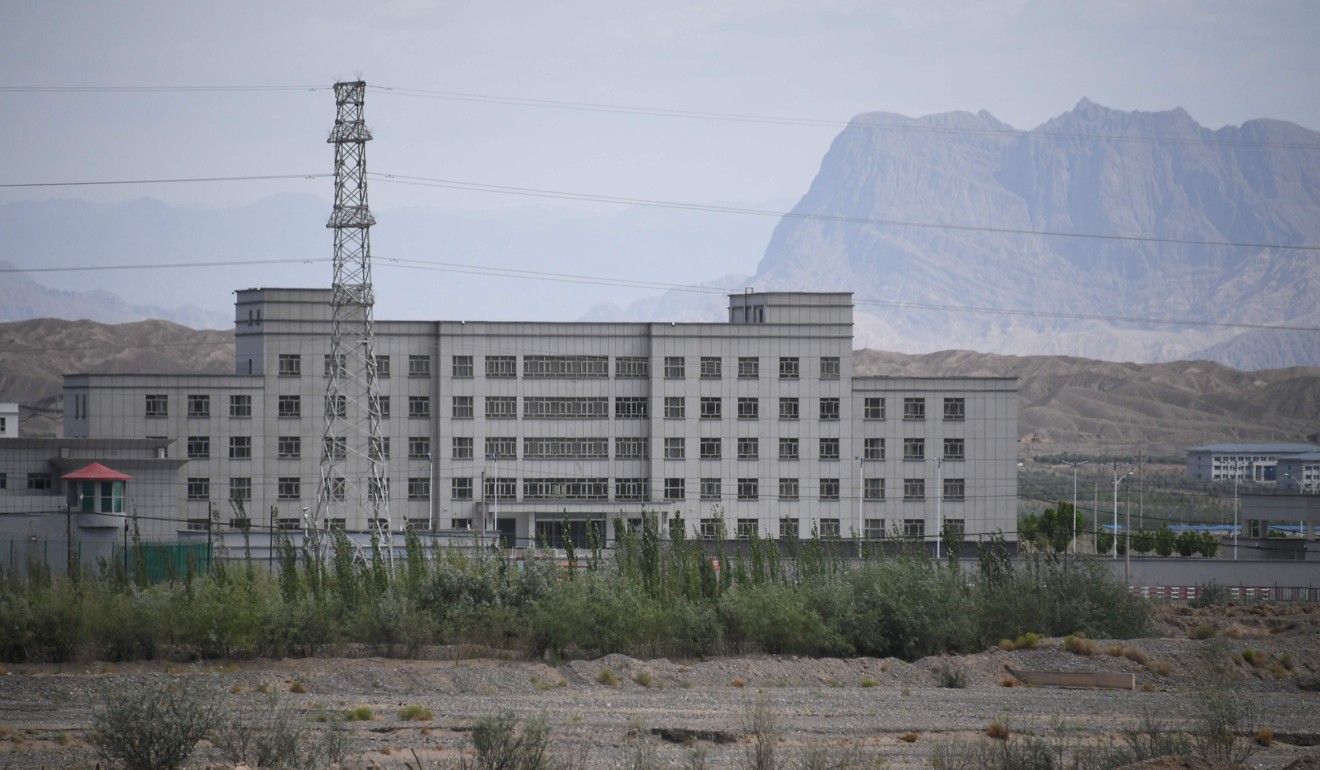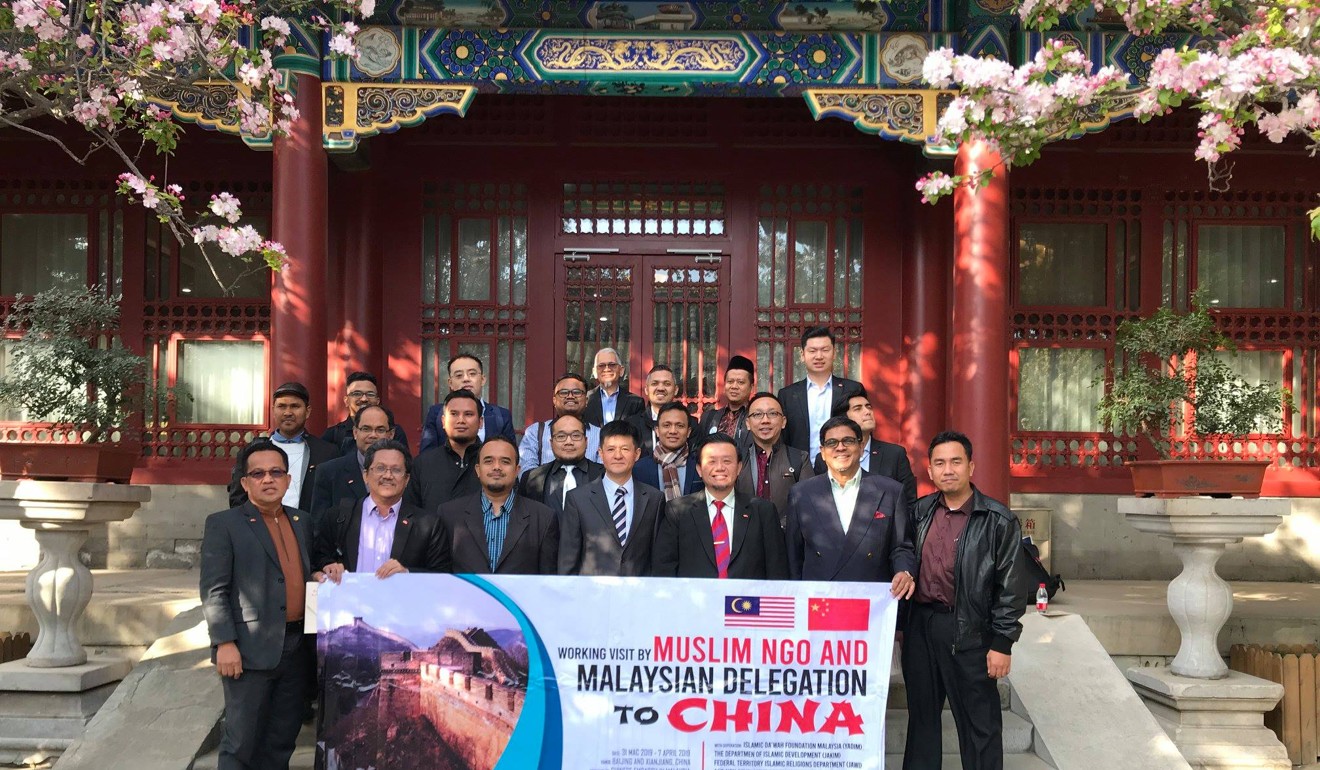
In Malaysia, China’s PR blitz on Uygurs in Xinjiang sparks anger
- In op-eds carried by several media outlets, China’s ambassador Bai Tian denounced ‘Western’ reports of abuses in Xinjiang
- But the commentaries in English, Chinese and Malay have backfired, causing outrage online and among the country’s leading Muslim intellectuals
Rights groups including the United Nations say more than a million Muslims are being held against their will in a bid to erase their culture.
Bai, however, in his commentary said Beijing did protect the rights of religious minorities, citing Xinjiang’s many halal restaurants and the fact that there was one mosque for every 530 people in the province – a higher ratio than in Turkey.
Mahathir joins criticism of comic book linking Malay-Muslim youths to extremism over Uygurs
“What minorities in China like Uygurs are facing is not torture, but policies and social welfare far more favourable than what their Han brethren are enjoying,” he said.
But the ambassador’s public relations blitz in the media – coupled with videos on the embassy’s official Facebook page highlighting “thousands of terrorist attacks” in Xinjiang – did little to reshape public opinion in Malaysia over China’s internment of its Muslim minorities. Instead, the commentaries sparked anger online and among the country’s leading Muslim intellectuals.
On Twitter, a user named Azhar Khan with the handle @azharkhanashfar asked the Malay Mail: “How much do they pay you?”, while Naga Kavin Amulthan using the handle @NKamuthan tweeted “Shame on you for this Chinese propaganda” at The Star.

The Islamic Renaissance Front (IRF), a think tank for youth empowerment and the promotion of Muslim intellectual discourse, slammed the media outlets who carried the piece, saying they were “obsessed with trying to publish anything positive about China”.
The Malay Mail defended its decision to publish Bai’s letter, saying it was for balance as its news portal had been running foreign news reports on Xinjiang, including reports of Uygur internment camps. Editor-in-chief Wong Sai Wan said “no one paid” the Malay Mail to publish the ambassador’s letter.
Malaysia revives 1MDB-linked mega project as it strengthens ties with China
Wong said he had received Bai’s commentary in an email and noted that his outlet had previously carried a Reuters story referencing a New York Times report on leaked Chinese government documents that revealed a clampdown on Muslims in Xinjiang under President Xi Jinping. Beijing has since denied that the documents are real.
“I thought it was only fair we carry the other side but as a letter, as we are in no position to see for ourselves what is the real situation. It was just a matter of fair play,” Wong said.

Political analyst Azmi Hassan said the scepticism towards China’s explanation was because most Malaysians believed the reports by Western media as “somewhat true” while the Chinese explanations were “somewhat embellished”.
He attributed this to anxiety over China’s influence and investments in Malaysia since the watershed May 2018 election, when the Beijing-friendly Barisan Nasional administration was booted out by the Pakatan Harapan coalition led by current Prime Minister Mahathir Mohamad.
Lawyer for Najib Razak says hitman’s claim ‘laughable’
Bilateral ties, at first prickly under the new administration, have since warmed after both countries renegotiated the East Coast Rail Link project, which had long faced accusations that its terms were excessive and in China’s favour.
‘POWERFUL NATION’
In Malaysia, opposition towards China’s treatment of Muslim minorities has been more pronounced than in Indonesia, where a mix of factors – including Jakarta’s fear of offending its top trading partner and suspicions towards Western media reports – have resulted in a muted reaction.
In October 2018, Mahathir released 11 Uygurs who were jailed under the previous government and sent them to Turkey, saying they had done nothing wrong and disregarding China’s request to extradite them back to Beijing.

“You don’t just try and do something which would fail anyway, so it is better to find some other less violent ways not to antagonise China too much, because China is beneficial for us,” he said.
A month later, Malaysians heaped criticism on a comic book written by a Malaysian former politician of ethnic Chinese descent that suggested Malays who supported China’s Uygurs were radicals. The comic, distributed to secondary schools for free, has since been banned.
Azmi, the political analyst, pointed out that while the plight of the Uygurs had the sympathy and support of many Malaysians, it did not have the same standing as the Palestinian cause – which Mahathir has been known to speak up for.
“Malaysians generally are quite well versed and, more importantly, more sympathetic to the Palestinians compared to the Uygurs,” he said. “In general, Malaysians [became] aware of the Xinjiang issue only very recently and therefore to [have] the same empathy as the Palestinian issue is a tall order.”
The country’s Muslim groups have mostly rebuffed China’s attempts to engage with them, unlike in Indonesia where clerics, journalists, politicians and social media influencers have gone on tours publicly expressing that they found nothing wrong with the camps.
The Muslim Youth Movement of Malaysia (ABIM), a prominent youth group, said it had rejected a Chinese embassy-organised visit to Beijing and Xinjiang’s capital Urumqi. Other Muslim and civil society groups did make the trip in April.
“We refuse to go there, because we know already, it is propaganda … a staged show by the [Chinese] government. And our presence there will be [seen as if] we are with the Chinese government on [Xinjiang],” said ABIM vice-president Ahmad Fahmi Mohd Samsudin.

Prominent Muslim political scientist Chandra Muzaffar, president of the NGO International Movement for a Just World, called for the Malaysian government to lead an independent investigation into Xinjiang to verify the treatment of Uygurs.
“The government should ask the Chinese authorities … to allow independent observers [such as] journalists, activists, and intellectuals to visit detention centres, that they be allowed to do their investigations, ask questions, for the purpose of preparing a report to be submitted to the Malaysian government,” Chandra said.
He said “one should not be echoing protesters” nor “take sides with the Chinese government” on Xinjiang because it was unclear what was the truth.
Malaysia flags US-China rivalry as key threat in defence white paper
“Muslims have been in the country since the 8th century and history has shown that Muslims have been given prominent positions in the government in the past like Admiral Zheng He,” Chandra said, referring to the Ming dynasty mariner and military official.
He said he was doubtful of the veracity of reports that Chinese officials had forced Muslims in Xinjiang to eat pork and consume alcohol, describing these as “outlandish” accusations. But the matter of internment camps needed to be investigated, Chandra said.
Malaysia could then decide how to act according to its investigations, even choosing to not make its report public in the name of “quiet diplomacy”.
“But nonetheless, we want the Chinese government, as a friendly government, to act seriously upon the findings,” he added. “The Chinese … they prefer that sort of quiet diplomacy rather than fanfare as it makes things difficult for them.”

